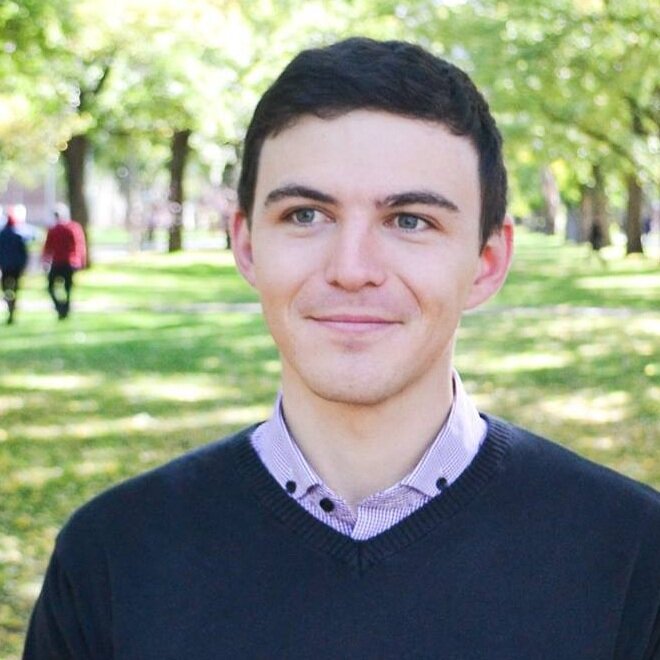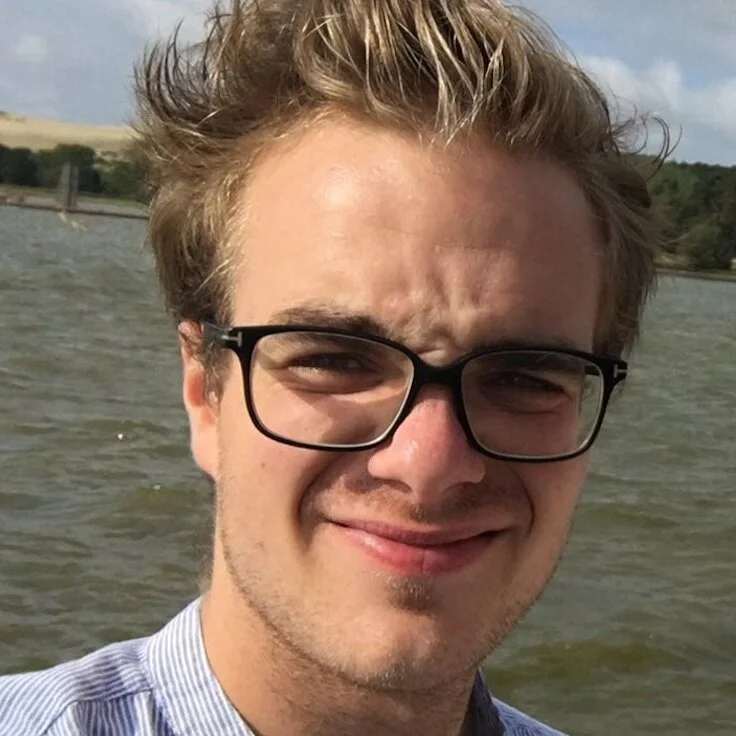Global Priorities Fellows - 2019
Below is a list of all 2019 fellows returning for the 2020 Global Priorities Fellowship. For the new cohort, please see this page.
Ben Grodeck
Ben Grodeck is currently a PhD student in economics at Monash University, specialising in Experimental and Behavioural Economics. Prior to his PhD, Ben completed honours years in both philosophy and economics. His current research interests include pro-social behaviour, social norms, and moral wiggle room. He is hoping to further understand the behaviour of different types of altruists and use experiments to discover which mechanisms or institutions can bring about beneficial outcomes in the present and the long-term future.
Brian Jabarian
Brian Jabarian is a visiting Ph.D. student at Department of Economics at Princeton University and a Graduate Affiliate of the Kahneman-Treisman Center for Behavioral Science & Public Policy. Brian’s research in behavioural economics and political economy aims to explore how economic and political institutions can be designed such that they reflect robust economic and political behaviour of agents. Prior arriving at Princeton, Brian has been a Ph.D. student in philosophy at Panthéon-Sorbonne University and a Graduate Fellow at the Paris School of Economics. He holds BA in philosophy and Economics from Aix-Marseille University and an MSc in the Philosophy of Science from the London School of Economics.
Danny Bressler
R. Daniel Bressler is a second year PhD candidate in the Sustainable Development program at Columbia University in the City of New York. He is interested in environmental economics, international relations, global catastrophic risks, conflict, and dual-use technologies. His PhD training is in economics with additional training in the natural sciences. Before starting his PhD, he worked as a management consultant for five years where he primarily advised CEOs and management teams of large companies. Personal website: rdanielbressler.com.
Hayden Wilkinson
Hayden Wilkinson is a PhD student in philosophy. He hails from the Australian National University but, at the moment, is studying at Princeton University on a Fulbright scholarship. His research looks at moral decision-making in a universe which is infinite and chaotic. In particular, he is interested in whether longtermism can be justified if our actions have infinitely many effects and we are clueless about almost all of them.
Lisa Ho
Lisa Ho is pursuing a PhD in Economics at MIT, with a focus on development economics and labor economics. She is particularly interested in the process of technological development, and effective strategies for provision of health care and education in low-income contexts. Before starting her PhD, Lisa studied public policy at Tsinghua University in Beijing as a Schwarzman Scholar. She holds a B.Sc. from MIT in computer science and mathematical economics.
Maximilian Negele
Max Negele is an economics graduate student at the University of Oxford. His journey into EA and Global Priorities Research started roughly in 2016 as a a September intern at Giving What We Can/CEA. Having gathered some experience in management consulting and operations, he now focuses on economic research. Specifically, he aims to explore how modelling approaches from economics can be adapted and developed to answer questions regarding the long-term.
Nicolas Cerkez
Originally from Switzerland, Nicolas Cerkez completed his undergraduate studies in acting and economics in NYC and is currently a PhD candidate in economics at UCL in London. His primary research analyzes how various anti-poverty policies in developing countries affect people’s preferences, perceptions, values, and beliefs. He is also working on issues related to climate change and environmental economics.
Nicholas Otis
Nick Otis is a third year PhD student in health economics at UC Berkeley. He is currently interested in the following questions: i) Do people hold accurate ex ante beliefs about the effects of policies, and how can belief accuracy and calibration be improved? ii) Can we use intervention-design tournaments inspired by mechanism design theory to create and select effective policies? Before starting his doctoral studies he lived in Nairobi, Kenya for two years, working at the intersection of behavioral and development economics.
Petra Kosonen
Petra Kosonen is a DPhil candidate in philosophy at the University of Oxford primarily interested in population ethics, decision theory and philosophy of science. She is from Finland, but before coming to Oxford did her undergraduate degree at the University of Glasgow and master’s degree at the University of Edinburgh. She is a member of the EA Oxford committee and is running a reading group on global priorities research.
Philip Trammell
Phil Trammell is a graduate student in economics at Oxford, and a graduate of Brown University, where he studied economics and mathematics. He currently works with Oxford's Global Priorities Institute, exploring how to apply the tools of economic and financial theory to questions of long-term importance. In particular, he is researching the possibility of influencing the future of civilisation by creating philanthropic trusts that grow for hundreds of years, or longer, before disbursing.
Signe Savén
With a master’s degree in law from Uppsala University and a master’s degree in philosophy from Stockholm University, Signe Savén is currently pursuing a PhD in philosophy at Lund University. Before this, she did research for a project aiming to promote a more long-term perspective in Swedish policymaking. Her main research interest is global priorities, and she current focus is on exploring longtermism. She has been part of the effective altruism community for a few years, and is a board member of Effective Altruism Sweden.
Tyler John
Tyler John is a PhD Student in Philosophy at Rutgers University. Prior to starting at Rutgers he was a fellow at the NIH Clinical Center, Department of Bioethics. He is a co-author of Chimpanzee Rights: The Philosophers’ Brief (Routledge) and of articles appearing in Economics and Philosophy, Ethics, and The Oxford Handbook of Consequentialism. In 2017, he was co-awarded the Rocky Mountain Ethics Congress Young Ethicist Prize. Tyler’s dissertation under development defends “liberal chronopolitanism,” a liberal egalitarian political morality that implies the equal political standing of present and future people and a right to suffrage for future generations.
Zach Freitas-Groff
Zach Freitas-Groff is a PhD student in economics at Stanford University. His current research in public economics, behavioral economics, and political economy centers on valuing long-term policy impacts and altruistic decision-making. He was previously a Research Analyst on evidence-based policies at Innovations for Poverty Action and is an advisor to Animal Charity Evaluators.
Zoe Hitzig
Zoë Hitzig is pursuing a PhD in Economics at Harvard. Her current projects in microeconomic theory and public economics center on the provision of public goods and the design of social insurance programs. She also studies economic methodology––for example, she has written on economists' roles in redesigning public school allocation algorithms and FCC spectrum auctions, and on the use of big data in economic research and policymaking. She holds an AB in Mathematics and Philosophy from Harvard and an MPhil in History and Philosophy of Science from Cambridge.














